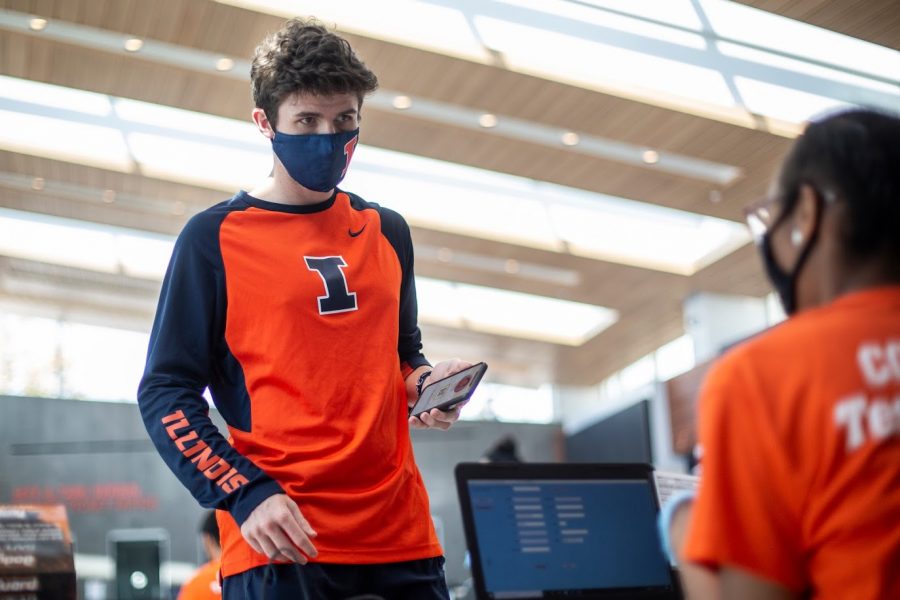More than 1,000 students face discipline for COVID-19 violations
Student John Keller checks into the COVID-19 testing site located at State Farm Center on Oct. 9. Twelve county residents have died from the virus in a two-week span.
Oct 29, 2020
On Wednesday, the C-U Public Health District added 189 new COVID-19 cases to the Champaign County total, but officials say these are cases from the last three days.
It’s the highest single-day addition to Champaign County’s case total since early September.
The active case total jumped by 141 as well, up to 437 countywide. Another 165 close contacts were ordered to quarantine for potential exposure to COVID-19 positive people, while 463 people were released from 14-day quarantines.
Hospitalizations for the virus bumped up by two, up to six countywide. A total of 999 people have tested positive after quarantining in Champaign county, around 10.4% of the quarantined population.
Champaign County stands at 6,176 cases of COVID-19 since the pandemic began, along with 5,711 recoveries and 28 fatalities for the virus.
Get The Daily Illini in your inbox!
According to a recent Massmail, more than 1,000 University students have faced “discipline, including dismissals for violations of COVID-19 policies.”
The single day new case positivity rate in Champaign County was 2.81% on Wednesday.
If a county reaches a rolling positivity rate of at least 8%, the county would be “at risk” for needing more mitigation strategies.
In a Champaign County COVID-19 briefing earlier this week, the Champaign-Urbana Public Health District also reminded residents that if they get a call from a contact tracer, they will never be asked for money, debit/credit card, bank account information, social security numbers or immigration status.
“Unfortunately, there are scammers who are taking advantage of this important public health tool of contact tracing by attempting to obtain personal information from unsuspecting people,” the briefing stated.






